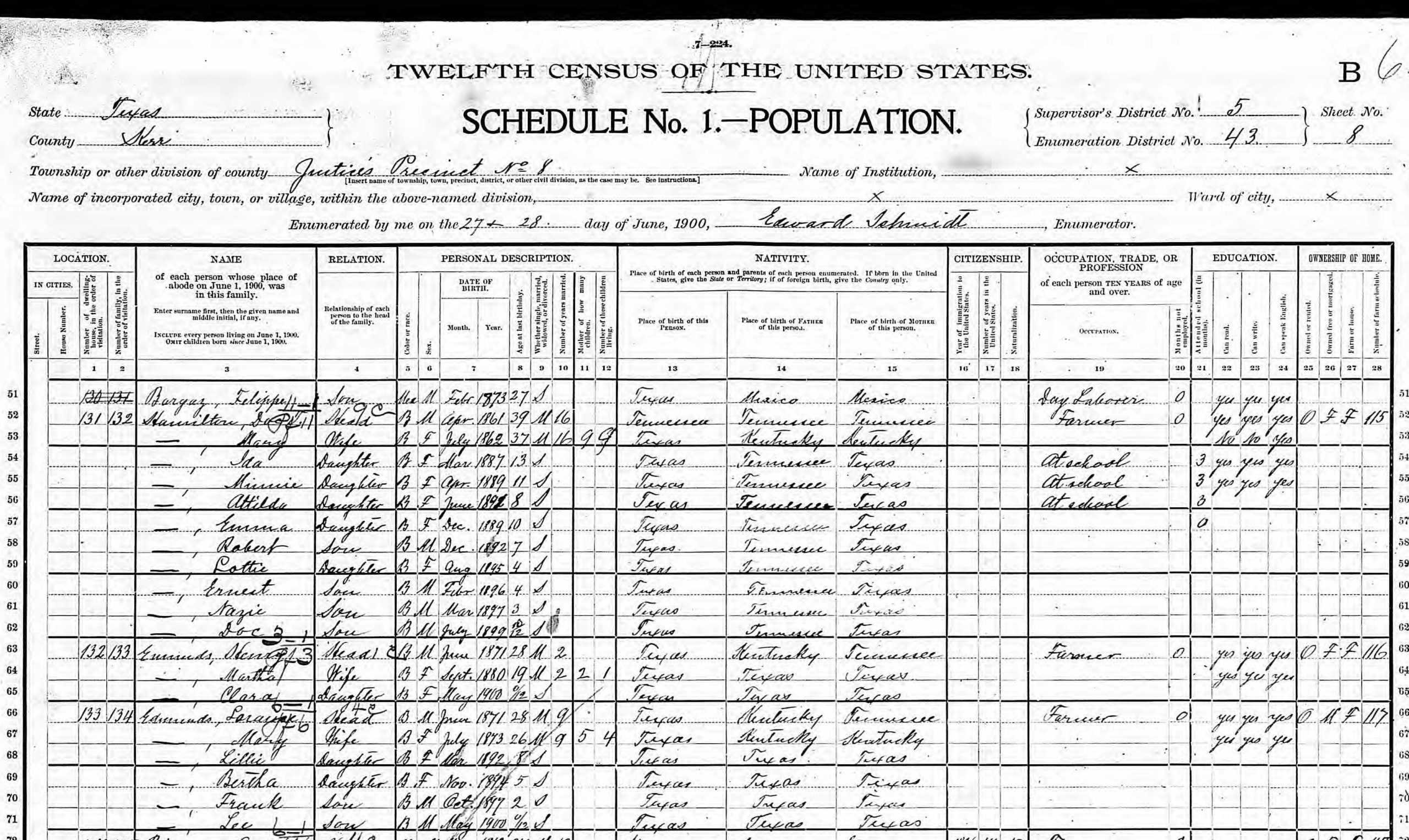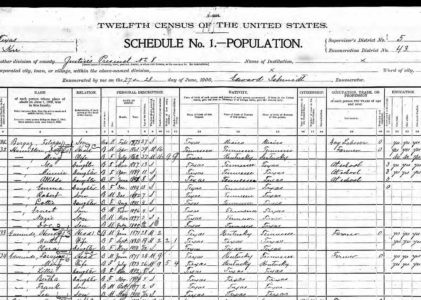I don’t really know how to start this one, so I’m going to dive right in: surnames/last names/family names. We know that they tend to favor the lines of men as opposed to women. In most of Western culture, the woman takes her husband’s name and this gets passed down to their kids. Even a woman’s maiden name is still a patrilineal line as it comes from her dad and not her mom, a name that can be traced back to a many-greats grandfather. Even in many other cultures there is still a similar favoring of the male line. For example, in many Hispanic cultures, women keep their names when they get married and they get to contribute to the last names of their children, but it’s the name of their father that they pass onto their kids. For example, if a woman’s two surnames are Amaro Barrios, she received Amaro from her father and she will pass it onto her kids, as the father’s name comes before the mother’s. Marrying a man with the surnames Calvo Dimas, their children’s surnames would be Calvo Amaro. So then, of the four grandparents that led to the grandbabies, only the grandfathers get recognized in the children’s names. Like the Western convention then, these names ultimately are patrilineal, but two paternal lines instead of one.
Despite not thinking that this system is ideal, I can still appreciate that it is slightly more progressive than the naming conventions of the West. When I initially reflected on this I found myself really disheartened as I didn’t know if there was really a better solution. I looked up some other cultural customs but what I came across didn’t satisfy. Alternatively, just flipping these traditions on their head creates the same problem the other way around, as an unbalanced focus on maternal lines doesn’t solve anything. Oddly enough I was so ready to give up on thinking that there was a solution that would respect maternal and paternal lines. I guess I assumed that if no one had thought of something by this point, it probably was just one of those things that wouldn’t ever serve both parties well. But in less than twenty-four hours I felt I had hit the jackpot of solutions, and maybe other people have thought of this before, but I nonetheless want to show off this sparkly new idea.
So let’s got back to the last names of our couple Amaro Barrios and Calvo Dimas. Now, the name Barrios is from our gal’s mother, so why not contribute that name to the kids of the couple? Instead of the children having the last name Calvo Amaro, they would have the name Calvo Barrios. Then, when those little kids have children of their own someday, the boys will pass on the name from their father, Calvo, onto all their children. Likewise, all the girls of this initial couple will pass on Barrios down to their kids.
Say this custom was adopted in the West, and in this case we hyphenate for simplicity. So a woman Sue Donald marries a man named Blake Jones, and they decide to hyphenate for their kids to Jones-Donald. Whether they keep their last names as is or they hyphenate as well is irrelevant for my explanation, but that would be to the preferences of the couple. Then they have a boy names Jimmy Jones-Donald and a girl named Dolly Jones-Donald. When they grow up, Jimmy marries a girl named Betty Smith, hyphenating as Jones-Smith, since Jimmy passes on his dad’s name. Alternatively, when Dolly later marries a guy named Aaron Rossi, they would hyphenate as Rossi-Donald, as Dolly would be passing along her mother’s name to her children.
Of course this system doesn’t create a maternal line going back generations, but instead creates one when a couple decides to take on this naming convention. In some ways it is really neat and hopefully empowering to decide on something like that. Understandably, however, throwing generations of tradition to the wayside can feel like a hassle and a measly drop in the bucket that won’t amount to any cultural change. First, I want to say that you never have to change a whole culture to decide that you want to do something, even if it may feel unpopular. However, I do want to say that if you’ve ever considered challenging naming conventions that don’t treat women as equals in the partnership of marriage or having kids, wouldn’t it be nice to think that you contribute one drop to the bucket, that generations from now becomes a pool, a lake, or even an ocean someday? Maybe that’s a little starry eyed of me, but I truly believe that tacking on another surname to the kids won’t actually unsettle too many guys, even if they themselves aren’t willing to hyphenate. Certainly many won’t like that idea, I don’t deny that, but I also believe that people, guys in this case, are more reasonable than we give them credit for.
To the religious folks in the back, especially those who have grown up with the Adam and Eve story as apart of their tradition, I want to say that I don’t believe this has to be in contradiction with faith. I think there is a lot to be said about how this story isn’t about one greater being: Adam, and his trusty sidekick Eve. Instead-and I encourage you to look into this further yourself-this story is about how two people are meant for each other. If two people are to become one flesh, why shouldn’t our last names do the same? It’s Adam and Eve, not Adam and the irrelevant lady who has no name. Or, as the inhabitants of Narnia refer to the Pevensie children: sons of Adam and daughters of Eve, not just sons and daughters of Adam.
To the rainbow children in the rafters, I hope you don’t feel excluded by this reflection. I’m sure there have been many discussions in the LGBT community about how to deal with names, probably far more extensive than in straight circles. Because of this I don’t feel the need to elaborate on what this would look like for same sex couples since I’m sure those thoughts are out there. If nonetheless you have read this far thank you very much! I certainly appreciate your presence and if you ever want to tell your straight friends they are a little silly for not even entertaining the idea of using both of each others names, I bless your playful nagging.

